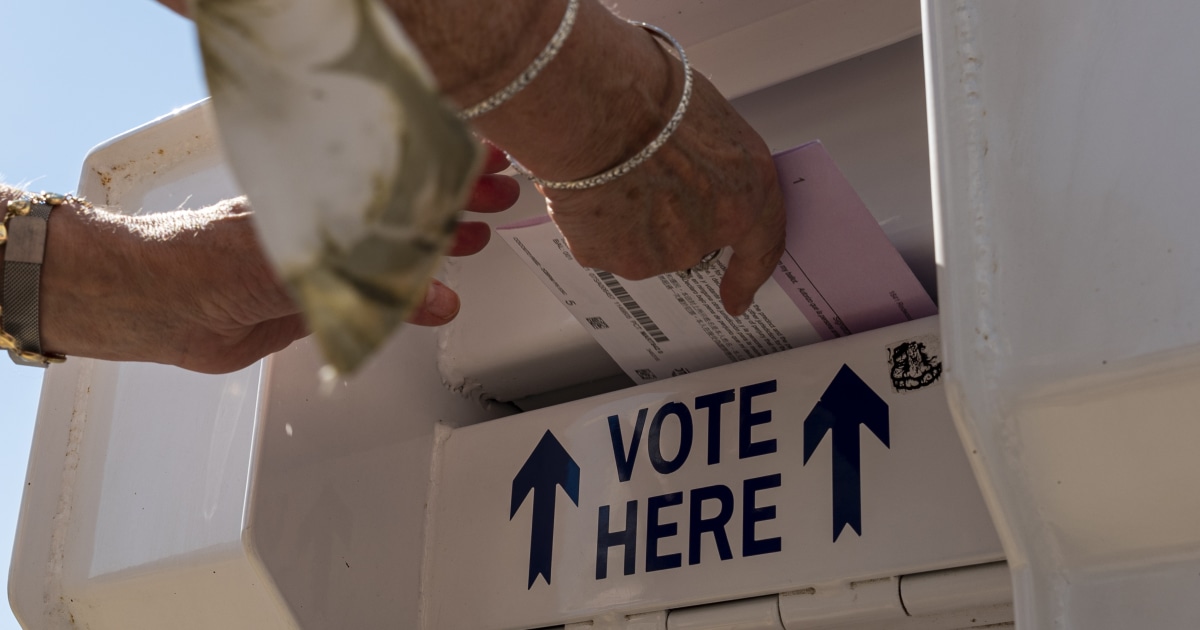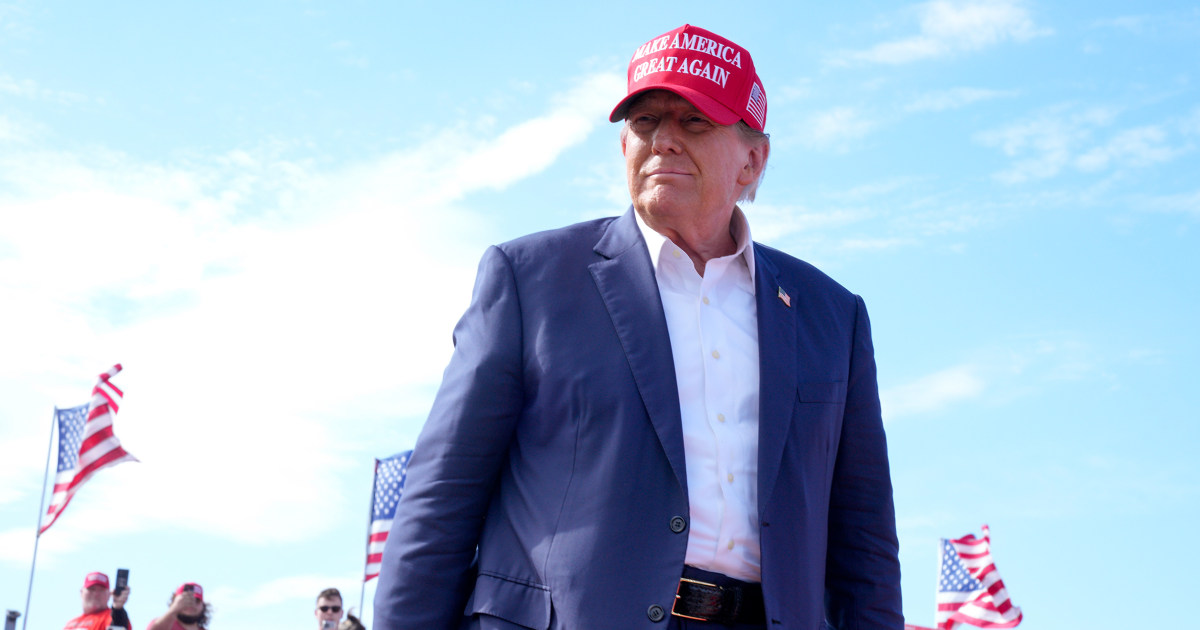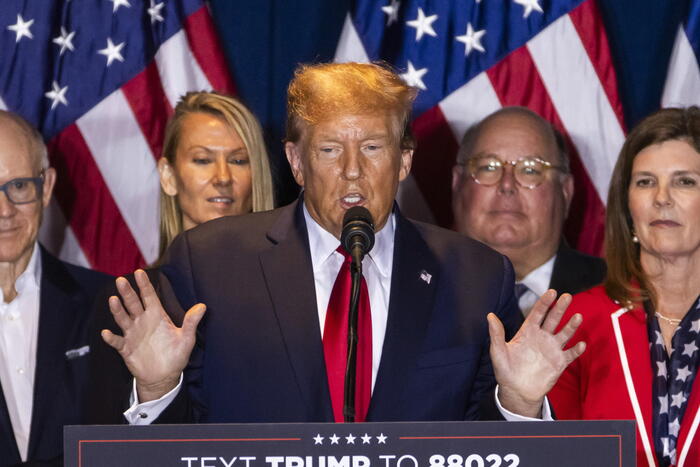By Adam Edelman - NBC News
Lawmakers from 38 states have introduced nearly 200 bills this year that would allow state governments to "subvert" elections, according to a report by three nonpartisan groups that track such bills.
Analysis by the States United Democracy Center, Protect Democracy and Law Forward found that lawmakers — mostly Republicans — introduced 185 bills in their state legislative sessions from Jan. 1 to May 3 that would increase the risk of subversion by politicizing, criminalizing or interfering in elections.
[Fox News CEO Admits Channel Hosts Spread False Information About Alleged Voter Fraud]
This figure is similar to that of the sessions of the last two years, which the groups have also analysed. Fifteen of the bills introduced this year have already passed.
NBC News, Noticias Telemundo's sister network, obtained the report ahead of its release Thursday morning.
Their findings suggest that the election-denying movement is alive and well in state chambers across the United States — even though an overwhelming number of election deniers (candidates who have echoed former President Donald Trump's continued false claims that the 2020 election was stolen from him) lost their Senate and Secretary of State elections in the midterm elections. of last year – and that attempts to facilitate the annulment of the elections will persist if such legislation is not curbed.
Pence criticizes Trump for storming the Capitol: "I chose the Constitution. He was wrong."
June 8, 202301:10
The analysis defined electoral subversion as the result of any bill proposing one of five actions: usurping control over election results, requiring election audits or reviews of partisan or unprofessional results, seizing power over electoral responsibilities, creating unworkable burdens on electoral administration, or imposing disproportionate criminal or other sanctions.
"Lawmakers try to make it harder for trusted election officials and make it easier for partisan politicians to override the will of voters. While many may think this threat has diminished after the midterm elections, the truth is that it hasn't," Maya Ingram, senior policy development adviser at the Center for American Democracy, told NBC News. "In fact, lawmakers are coming up with new ways to interfere in elections."
The authors of the analysis wrote that many of the bills are designed "to inject confusion and delays into the electoral process, increasing the likelihood of subversion attempts and may result in disinformation, further eroding public trust and confidence in election results."
[Former Republican Candidate Arrested in New Mexico for Series of Shootings at Democratic Politicians' Homes]
According to the authors, the scenarios resulting from many of the proposed laws are more dangerous in close elections, because "partisan actors" could use them to exploit confusion about the results "to claim that the true will of the voters cannot be determined" and to "plot the outcome of their election."
For example, Texas Republican lawmakers proposed a bill — HB 5082 — that would give state officials the authority to order new elections in counties with a population greater than one million if there is "good cause" to conclude that 2% of polling stations ran out of ballots and received no replacements. Such counties — like Harris, which includes Houston — are home to a large portion of the state's Democratic voters.
Arizona Republicans introduced a bill — HB 2078 — that, if enacted, would allow candidates, county political party chairmen and certain state election measures committees to request post-election investigations that the law would result in audits by the secretary of state.
The FBI will take to Congress a report on an alleged bribe to Biden when he was vice president
June 5, 202300:32
While these audits should be straightforward in theory, opponents of the Arizona bill, and similar bills, point out that 12 state deniers, including Mark Finchem in Arizona, ran for secretary of state in <> states last year. Although Finchem lost, the scenario raised enormous concern about how such an audit could be conducted with an election denier overseeing it.
Meanwhile, GOP-sponsored bills in Arizona, South Carolina and Virginia proposed banning the use of electronic vote tabulation machines and instituting direct counting instead, a practice experts say takes much longer than mechanical tabulation and is far more error-prone.
[DOJ notifies Trump that there is a criminal investigation against him for the handling of classified documents]
Among the laws that have been enacted is SB 222, passed and signed into law by Georgia Republicans, which makes it a felony for local poll workers or government officials to accept private funds, including grants, to defray election costs. Republicans in Arkansas, Idaho and Montana enacted similar laws in their last legislative sessions.
And in Florida, Gov. Ron DeSantis, who is running for the GOP nomination for president, signed a bill expanding the powers of the state attorney to prosecute voter fraud, even though these crimes are extremely rare.
The Legislature also increased the budget for DeSantis' election police, despite widespread criticism over his arrests of two dozen people accused of not being eligible to vote when they voted in the 2020 election, even though the DeSantis administration also told them they could vote legally.
Those laws will almost certainly affect voting behavior and how elections are administered in those states and others where laws have been enacted.
"The decisions states make today will determine how elections will be administered in 2024," said Ingram of the U.S. Democracy Center. He added that "even when these bills do not become law, they keep lies and conspiracy theories alive and sustain the election-denying movement."






/cloudfront-eu-central-1.images.arcpublishing.com/prisa/ER7U6EORBYZQKLRT5DMWGQFXLE.jpg)

/cloudfront-eu-central-1.images.arcpublishing.com/prisa/GQ7AFCK2OMNDZLULOZ7T5JPACM.jpg)